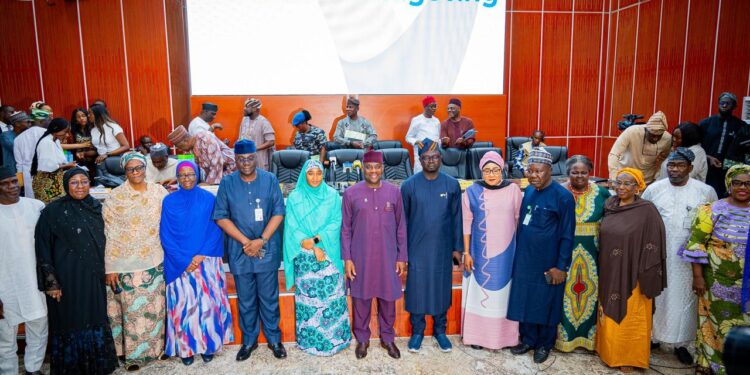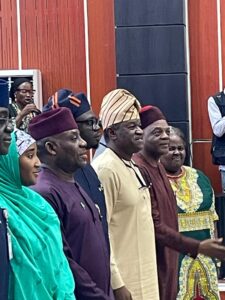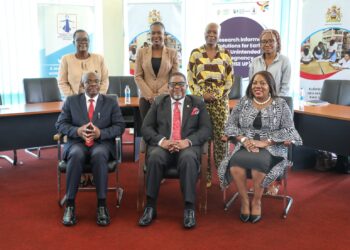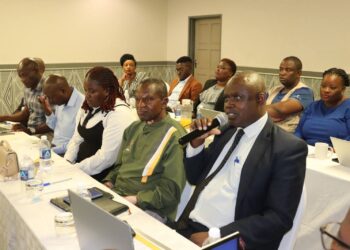In a major stride towards overhauling Nigeria’s technical education system and reducing youth unemployment, the Federal Government has launched a comprehensive Technical and Vocational Education and Training (TVET) initiative aimed at equipping millions of young Nigerians with practical, industry-relevant skills.
Themed “Advancing Skills and Empowering the Future”, the landmark programme was unveiled on Thursday at a national ceremony in Abuja by the Minister of Education, Dr Maruf Olatunji Alausa, alongside the Minister of State for Education, Professor Suwaiba Said Ahmad.
Dr Alausa described the initiative as a strategic intervention to harness Nigeria’s youthful population for national development, stating: “Our greatest resource is not beneath the ground. It is the energy, creativity, and talent of our people.”
With over 70 per cent of the country’s population under the age of 30, the minister stressed the urgency of converting this demographic strength into productive capacity through a robust and inclusive TVET framework.
The reformed TVET scheme is built around three flagship programmes:
Master 6 – Six-month training, open to all holders of the National Identification Number (NIN)
Master 12 – One-year training, also open to NIN holders
Technical College Track – A three-year programme targeted at young Nigerians aged 13–20
Training under the initiative is scheduled to begin in August 2025 across Vocational Enterprise Institutes (VEIs), Skills Training Centres (STCs), and Federal/State Technical Colleges nationwide. The curriculum is structured to be 80 per cent practical and 20 per cent theoretical, with a focus on 25 high-demand skill areas.
Some of the benefits of the initiative include:
Standardised skills certification through NABTEB and sectoral awarding bodies
Free tuition at public technical schools
Monthly stipends of ₦22,500 for trainees
Access to starter packs and low-interest loans for entrepreneurial ventures
A national target to train five million youth by 2030
Emphasis on industry-aligned, demand-driven skills
Strong monitoring and evaluation frameworks
Digital skills acceleration and institutional incentives
Dr Alausa called on both public and private sector stakeholders to take ownership of the initiative, stressing that the government’s goal is “not merely to produce certified graduates but to build a skilled workforce ready to power our industries.”
In her remarks, Professor Ahmad hailed the launch as a “milestone in our shared journey to revitalise education and unlock national potential.” She noted that the programme aligns with President Bola Ahmed Tinubu’s Renewed Hope Agenda and announced the forthcoming Luminah 2030 scheme, which aims to empower one million mothers and girls with life-enhancing vocational skills.
“Let me blow our trumpet just a little—after all, even a chalkboard needs someone to write on it,” she added in a lighter tone.
The Permanent Secretary of the Ministry, Mr Abel Olumiyiwa Enitan, praised the Ministers’ collaborative leadership, describing the initiative as “carefully designed to align with modern economic transformation strategies.”
Ministers from related sectors, including the Minister of Youth Development, Comrade Ayodeji Olawande, and Mr Muhammadu Maigari Dingyadi—representing the Labour and Employment Ministry—also expressed support, citing the programme’s potential to address unemployment and boost job creation.
Executive Secretary of the National Board for Technical Education (NBTE), Professor Idris Bugaje, highlighted the importance of the Nigerian Skills Qualifications Framework (NSQF) in aligning TVET standards with labour market demands.
During an interactive session at the launch, participants raised questions about the inclusion of rural and marginalised communities. In response, officials assured that the programme will adopt a data-driven, inclusive implementation strategy to ensure “no one is left behind.”
The event concluded with a united resolve from government representatives, industry stakeholders and education leaders to position TVET as a critical engine for economic growth and national renewal.





















































































 EduTimes Africa, a product of Education Times Africa, is a magazine publication that aims to lend its support to close the yawning gap in Africa's educational development.
EduTimes Africa, a product of Education Times Africa, is a magazine publication that aims to lend its support to close the yawning gap in Africa's educational development.